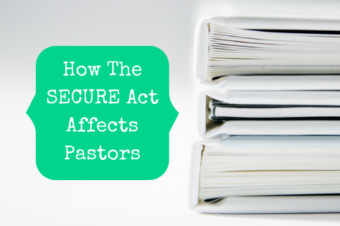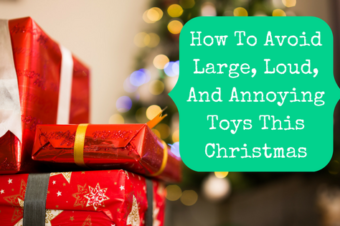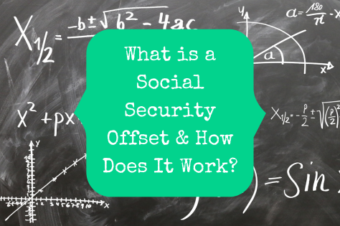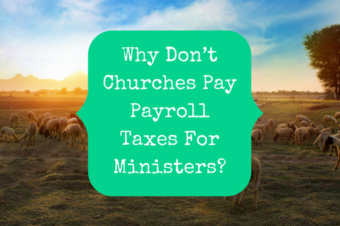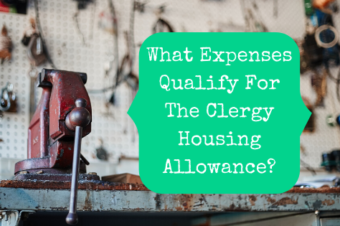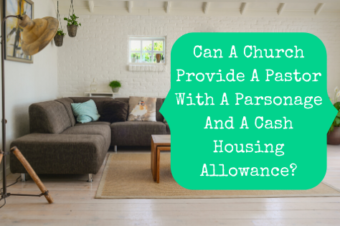Last week, I wrote about things you should do after having a baby. One of the things I mentioned was saving for college and I got a lot of questions about it. We all know it’s a good idea to save if we want our kids to go to college, but for most of us, that’s the extent of our knowledge. How do you save? What are your options? Where do you put the money? How do you even open an account?
Today I’ll go into more detail about what your options are and how you can make the most of the money you are working hard to save.
Use A Tax-Advantaged Account
Anyone can save money in a simple savings account. There are two problems with doing that, though. First, you hardly earn any interest on your money. When you factor in inflation, your money is actually worth less after sitting in a savings account for awhile. Second, you have to pay taxes on any interest you do manage to earn.
Usually, we think of taxes as an inevitable part of living in a civilized society, but when it comes to college savings they don’t have to be! The government has provided two different options for saving where you don’t have to pay any taxes on the growth when used for qualified educational expenses.
Coverdell Educational Savings Account
The first option is the Coverdell Educational Savings Account (ESA). Sometimes called Educational IRAs, these work a lot like IRAs do for retirement except that they are used to save for qualified educational costs. If your income does not exceed the limits, you can open one for anyone under the age of 18 and contribute up to $2,000 each year. A beneficiary may have multiple accounts, but $2,000 is the limit that can be contributed annually from all contributors combined.
The best thing about an ESA is the investment flexibility. Just like an IRA, they can be invested in any number of stocks, bonds, mutual funds, etc. and the person that opens the account makes all of the investment decisions. Another noteworthy feature of the ESA is that it isn’t just used for college, it can be used for K-12 education as well.
529 Plan
The second tax-advantaged savings option is a 529 plan. They are offered by states or educational institutions and get their numeric name from the section of the Internal Revenue Code that authorizes them. Every state sets up their plan(s) differently, and you don’t have to be a resident to participate in a state’s plan.
These plans are great because they usually have no annual contribution limit (only high lifetime limits), no age limits and no income limits. Anyone can contribute to them. Also, many states offer tax deductions for residents who invest in their state’s plan. Thanks to the Tax Cuts & Jobs Act, up to $10,000 a year of 529 funds can be used for K-12 educational expenses.
Types Of 529 Plans
There are generally two types of 529 plans; savings plans and prepaid tuition. Savings plans work just like most workplace retirement accounts. You choose from several available investment options and then your account balance goes up and down based on how those investments perform.
Prepaid plans are a way of pre-paying tuition for a specific school or state college system. They can usually be converted to cover out-of-state or private tuition as well.
Which Type Is Better?
Since you can choose from any state’s plan, you have a lot of options. Which kind of plan is better? Let’s look at the math. Over the last 10 years, the cost of college has gone up about 5% a year. So, if you prepay, you essentially get a 5% rate of return. That’s much better than just a savings account! But is it the best you can do?
If you were to go for a savings plan, you could invest in the S&P 500, or an index fund that tracks it. From 1926-2018 the S&P 500 averaged 10% – 11% a year. That’s twice what you would get with prepaid tuition. Double sounds good, but doubling the rate of return doesn’t just double how much money you have. Thanks to compounding interest, doubling your rate of return means you would end up with more than twice as much money.
Basically, the kind of investment you choose for your savings plan will dictate whether you can get a better or worse return than with a prepaid plan. A plan that earns you more than 5% a year will make your money go farther than it would in a prepaid plan. Just remember, investing in the stock market carries risk and the potential to lose your money as well as earn more.
Since I live in the Pacific Northwest, let’s take a quick look at Oregon and Washington’s 529 plans as examples:
Oregon 529 Plan
The Oregon College Savings Plan is a savings plan that offers age-based portfolios, guaranteed portfolios, multi-fund portfolios and single-fund portfolios. You can see the historical performance of the different options here, and you’ll see that they range from almost 1.5% to over 9.5%. Money held in an Oregon 529 can be used at any accredited college or university nationwide.
Contributions to the plan are deductible for Oregon state income taxes. The lifetime maximum contribution is $400,000, but you only need $25 to open an account. To make saving easier, they offer automatic payroll deductions of as little as $15 a month. Accounts can be opened online through their website in about 15 minutes.
Washington 529 Plan
Washington state’s 529 plan is called GET, Guaranteed Education Tuition and is a prepaid tuition plan. You participate by purchasing units for the going price which can then be redeemed when your child is in college. The value of a unit is based on the cost of tuition and fees for the most expensive public university in the state in the year that it is redeemed. Though the plan guarantees tuition for state schools, the money can be used for attending schools out-of-state. Tuition levels vary by state and school, so your money may not go as far in another state as it would in Washington.
What I Use Personally
We have both kinds of plans for each of our children. We started with ESAs for their increased investment options and then opened 529 plans to avoid the limits associated with ESAs. They are all invested in good mutual funds and I have been very pleased with them so far. I can’t play favorites because I’m happy with them both.
Now Take Action!
Hopefully the information here has given you a better understanding of your college savings options. Now it’s time to take action, choose one and start saving! To learn more about choosing investment options within your college savings plan, follow this link.


